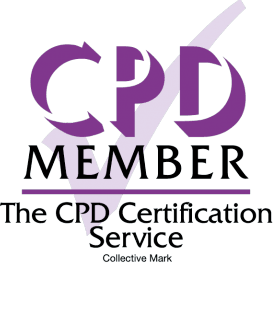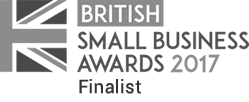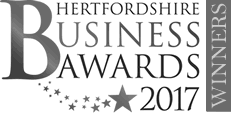Course Details
- Course Code: USVC18CBT
- Location: Online
- Duration: 14 hours
- Cost:
- Qualification: All modern browsers and devices
Further Details
- Course Access: Lifetime
- Exams Included: Yes
- Compatibility: All modern browsers and devices
Approved Course:

A010038
Cognitive Behavioral Therapy Certificate
Cognitive Behavioral Therapy (CBT) has emerged as one of the most effective treatments for a wide range of psychological problems. By helping a client understand how their thoughts, feelings, and behaviors interact to maintain faulty patterns of thinking, CBT assists them in developing a more constructive approach to problem-solving and life in general.
This course provides a comprehensive overview of the theory underlying CBT, the counseling skills that underpin good therapeutic practice and how to implement specific CBT techniques in the treatment of depression, anxiety, and other common mental health problems.
You Will Learn:
- What is meant by the term “cognitive behavioral therapy” (CBT) and the underlying principles that guide CBT practitioners.
- How counselling works to promote change and the basic counselling skills every therapist needs to develop.
- How to develop listening skills that promote client disclosure and how to communicate empathy.
- How to help clients identify their irrational beliefs and how the ABC model is used to guide CBT.
- How to formulate a case and plan CBT sessions.
- How to select and implement CBT tools such as journaling, behavioral experiments and challenging maladaptive thoughts.
- How to use CBT techniques to help someone overcome depression and resume engagement with day-to-day life.
- How to use CBT techniques to reduce the impact of a client’s anxiety, overcome panic attacks and conquer phobias.
- How thoughts, feelings and behaviors cause and maintain insomnia, and how CBT can help a client resume a normal sleeping pattern.
- An overview of two therapies based on CBT – Dialectical Behavioral Therapy (DBT) and Solution-Focused Therapy (SFT) – and the client populations most likely to benefit from them.
Benefits Of Taking This Course
- You will learn how CBT and psychotherapy in general work to alleviate mental distress.
- You will gain insight into a number of common mental health conditions, which is useful for anyone working in, or looking to work in, a caring profession.
- You will discover how faulty cognition and maladaptive behaviors maintain mental distress, which will enable you to help yourself and others adopt more effective coping methods.
- Your knowledge will give you the confidence to decide whether a career as a CBT therapist is right for you.
- You can study from any location with an internet connection.
- Learn the material at any time and at your own pace.
- Lifetime access to the course – no deadlines.
Course Modules/Lessons
Module 01: The Underlying Principles Behind CBT
- A brief overview of what is meant by the term “CBT”
- An overview of the most common counselling approaches in modern therapy
- The context of CBT, including the research and psychological approaches underlying CBT
- The interplay of thoughts, emotions and actions as conceptualized by CBT practitioners
Module 02: Basic Counseling Skills
- Why basic counseling skills are the foundation of good practice, regardless of the therapeutic approach used
- The role of the therapeutic alliance and how it differs from friendships and other professional relationships
- Why therapists must maintain appropriate boundaries between themselves and a patient and the consequences of poor boundary-setting
- The importance of listening and the differences between passive and active listening
Module 04: Case Formulation, Irrational Beliefs & The ABC Model
- How to conduct a patient consultation and formulate a case
- The components of a good case formulation and how it should be used to guide a therapist’s choice of techniques
- How the ABC model can be used to help a patient understand how their beliefs are maintaining their state of distress
- How to help a patient identify their irrational beliefs
Module 05: Planning A CBT Session
- Why you need to understand the components that make up an effective CBT session
- Material that should be addressed within the first few minutes of a session
- How to review homework and provide constructive feedback
- How to set and implement a suitable agenda for the session
Module 06: Basic CBT Techniques
- How to help a patient challenge their negative thoughts using thought records and diaries
- The most common cognitive distortions seen in CBT practice
- How to help a patient overcome resistance with regards to changing their thoughts
- The STOPP technique and how it can help a patient live with negative thoughts
Module 07: Further CBT Techniques
- How behavioral experiments can be used to challenge a patient’s thoughts and feelings
- The various types of behavioral experiments used to help patients address their fears and overcome maladaptive thoughts
- How exposure and response prevention techniques can help a patient overcome compulsive behaviors
- Why encouraging a patient to imagine the worst-case scenario can help lower their CBT is currently the type of talking treatment most commonly off anxiety levels
Module 08: Using CBT In The Treatment Of Depression, Anxiety & Phobias
- The symptoms of depression and why it is the most commonly seen problem in contemporary CBT practice
- The typical thought patterns that present in cases of depression and how these cognitive distortions affect a patient’s feelings and behaviors
- Why people with depression have problems enjoying activities and how CBT can help them re-engage with life
- The various types of anxiety disorders and how a patient’s thoughts, feelings and behaviors can maintain the symptoms
Module 09: Using CBT In The Treatment Of Excessive Anger & Insomnia
- The signs of pathological anger and why it warrants careful management
- What happens in the body when someone experiences extreme anger and why it is useful to explain this process to a patient
- The thoughts, feelings and behaviors underlying pathological anger
- How to help a patient challenge their thoughts, feelings and behavior to reduce their anger
Module 10: Dialectical Behavior Therapy (DBT) & Solution-Focused Therapy (SFT)
- How early CBT paradigms laid the basis for other variations now in popular use
- An overview of Dialectical Behavior Therapy (DBT) and its key indications
- The specific skills and techniques a therapist needs to implement DBT
- An overview of Solution Focussed Brief Therapy (SFBT) and how it can be used to trigger positive change in patients
Example Certificate




A010038

How online learning can benefit you..
FAQ's
-
Who can take the course?
Anyone who has an interest in gaining a greater understanding of this subject is encouraged to take the course. There are no entry requirements to take the course.
-
What is the structure of the course?
The course is broken down in to individual modules. Each module takes between 30 and 90 minutes on average to study. Although you are free to spend as much or as little time as you feel necessary on each module, simply log in and out of the course at your convenience.
-
Where / when can I study the course?
You can study the course any time you like. Simply log in and out of the web based course as often as you require. The course is compatible with all computers, tablet devices and smart phones so you can even study while on the move!
-
Is there a test at the end of the course?
Once you have completed all of the modules there is a 30 (multiple choice) question test. The questions will be on a range of topics found within the modules. The test, like the course, is online and can be taken a time and location of your choosing.
-
What happens if I fail the test?
If you don’t pass the test first time you will get a second opportunity to take the test again after further study.
-
When will I receive my certificate?
Once you have completed your test you can log in to your account and download / print your certificate any time you need it. If you would prefer us to post you a certificate there will be an admin charge of $16
-
How can I pay?
We use Paypal for all payments on the site. You can either use your Visa, MasterCard ,American Express, Solo cards or PayPal account to pay for the online course. All payments are handled securely by Paypal.
-
Is my payment secure?
As previously mentioned your payment is totally secure. We use the latest ssl encryption for all transactions.
-
How long after payment can I begin the course?
You can begin the course immediately after your payment has been received.
You should receive an email with your log in details as soon as your payment has been accepted. If you don’t get this email please check your junk folder, failing that please contact us for further assistance. -
How long is my certificate valid for?
There is no expiry or renewal fees






















